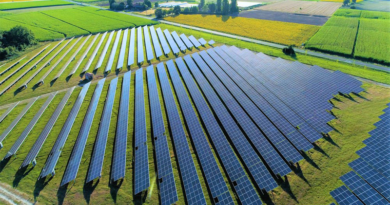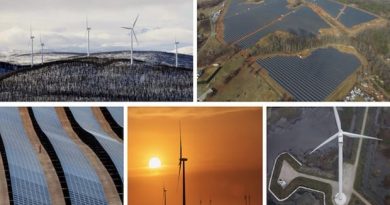Russia Proposes First Draft Bill To Regulate CO2 Emissions

World’s fifth largest emitter, Russia is considering climate legislation that could give it a framework for regulating carbon emissions for the first time.
The draft bill would give the government powers to introduce greenhouse gas emission targets for companies, and charges for those that exceed them, with proceeds potentially going into a fund to support carbon-cutting projects.
The legislation, which has been drawn up by the Ministry of Economic Development, is under consultation with other ministries and stakeholders and expected to be finalized in June.
The framework includes different regulatory mechanisms, like cap and trade system of emissions permits and tax breaks for companies reducing or capturing their emissions.
Specific targets for particular sectors are not yet included. From the set of policy instruments presented, though, future governments would then be able to “select and apply, as required”, says Alexei Kokorin, director of the climate and energy programme at WWF Russia.
The move has been welcomed by environmental NGOs which have long called for legally binding targets on greenhouse gas emissions in Russia.
Vladimir Chuprov, from Greenpeace Russia, said the law, if passed, would set a “new legal norm for Russian legislative history”, providing “CO2 and other greenhouse gases with legal status.” It “puts the question of CO2 cuts on the table,” he added, even if the “targets are low”.
The current draft will face strong opposition from within the Russian parliament and industry. A source from the Russian Union of Industrialists and Entrepreneurs (RSPP), which presented an alternative, weaker piece of legislation in December, excluding quotas, emissions trading and charges for exceeding emissions targets, told the Russian newspaper Kommersant that it “could not support” the legislation “in its present form”.
Russian environmentalists are divided over the chances of the climate legislation passing into law, with only the ministries of economy and environment said to be in favor of the draft.
Backed by the fossil fuel industry, its energy ministry opposes the current version of the law. its worth adding that the legislation steers clear of mentioning the Paris Agreement, which Russia is one of the few countries yet to ratify.
The legislation comes amid efforts by President Vladimir Putin to modernize Russia for an era of greener international markets. A 2018 state report found up to 70 percent of Russia’s energy infrastructure, which includes nuclear and pipelines, was outdated. Under such conditions, the social and economic damage from accidents can be estimated at 600-700 billion rubles ($9.35-10.9bn) per year, threatening Russia’s economic stability.




